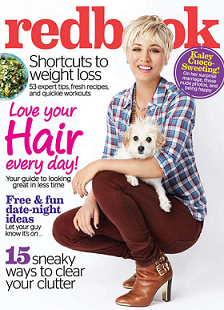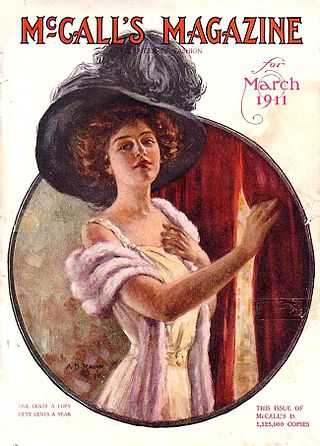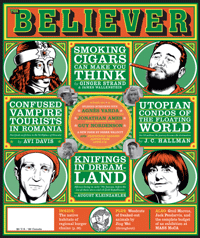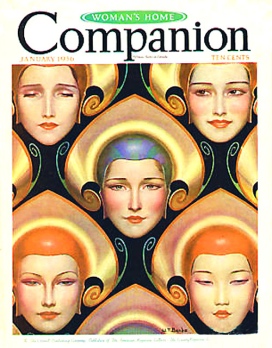Related Research Articles

Franklin Patrick Herbert Jr. was an American science fiction author best known for the 1965 novel Dune and its five sequels. Though he became famous for his novels, he also wrote short stories and worked as a newspaper journalist, photographer, book reviewer, ecological consultant, and lecturer.

Ladies' Home Journal was an American magazine last published by the Meredith Corporation. It was first published on February 16, 1883, and eventually became one of the leading women's magazines of the 20th century in the United States. In 1891, it was published in Philadelphia by the Curtis Publishing Company. In 1903, it was the first American magazine to reach one million subscribers.
Walter Braden "Jack" Finney was an American writer. His best-known works are science fiction and thrillers, including The Body Snatchers and Time and Again. The former was the basis for the 1956 film Invasion of the Body Snatchers and its remakes.

Redbook is an American women's magazine that is published by the Hearst Corporation. It is one of the "Seven Sisters", a group of women's service magazines. It ceased print publication after January 2019 and now operates exclusively online.

Sam Gross was an American cartoonist, specializing in single-panel cartoons. He contributed to an array of publications, including The New Yorker.

Good Housekeeping is an American and British women's magazine featuring articles about women's interests, product testing by The Good Housekeeping Institute, recipes, diet, and health, as well as literary articles. The institute is known for its "Good Housekeeping Seal", a limited warranty program that is popularly known as the "Good Housekeeping Seal of Approval."

McCall's was a monthly American women's magazine, published by the McCall Corporation, that enjoyed great popularity through much of the 20th century, peaking at a readership of 8.4 million in the early 1960s. The publication was established as a small-format magazine called The Queen in 1873. In 1897 it was renamed McCall's Magazine—The Queen of Fashion and subsequently grew in size to become a large-format glossy. It was one of the "Seven Sisters" group of women's service magazines.

The Believer is an American bimonthly magazine of interviews, essays, and reviews, founded by the writers Heidi Julavits, Vendela Vida, and Ed Park in 2003. The magazine is a five-time finalist for the National Magazine Award.

Edgar Domingo Evia y Joutard, known professionally as Edgar de Evia, was a Mexican-born American interiors photographer.

American Heritage is a magazine dedicated to covering the history of the United States for a mainstream readership. Until 2007, the magazine was published by Forbes. Since that time, Edwin S. Grosvenor has been its editor and publisher. Print publication was suspended early in 2013, but the magazine relaunched in digital format with the Summer 2017 issue after a Kickstarter campaign raised $31,203 from 587 backers. The 70th Anniversary issue of the magazine on the subject "What Makes America Great?" includes essays by such historians as Fergus Bordewich, Douglas Brinkley, Joseph Ellis, and David S. Reynolds.

Meet Corliss Archer is an American radio program from radio's Golden Age that ran from January 7, 1943, to September 30, 1956. Although it was CBS's answer to NBC's A Date with Judy, it was also broadcast by NBC in 1948 as a summer replacement for The Bob Hope Show. From October 3, 1952, to June 26, 1953, it aired on ABC, finally returning to CBS. Despite the program's long run, fewer than 24 episodes are known to exist.

Woman's Home Companion was an American monthly magazine, published from 1873 to 1957. It was highly successful, climbing to a circulation peak of more than four million during the 1930s and 1940s. The magazine, headquartered in Springfield, Ohio, was discontinued in 1957.
The Seven Sisters is a group of magazines that has traditionally been aimed at married women who are homemakers with husbands and children, rather than single and working women. The name is derived from the Greek myth of the "seven sisters", also known as the Pleiades. A major force in 20th century American publishing, only three of the magazines are still published as physical magazines:
Stephen Birnbaum was an American writer, journalist and commentator best known for travel commentary and guide books. In addition to print media, he worked in television and radio, including appearances on three major U.S. commercial broadcast networks.
The London Scene is the name given to a series of six essays that Virginia Woolf wrote for Good Housekeeping magazine in 1931 and 1932. The title was not chosen by Woolf but comes from the 1975 republication of five of the essays. Originally the essays were referred to as 'Six Articles on London Life'.
Pruett Carter was an American illustrator who taught at the Grand Central School of Art and the Chouinard Art Institute. He illustrated national magazines, and was art director for Atlanta Journal and Good Housekeeping. Carter was inducted into the Society of Illustrator's Hall of Fame in 1988.

Alice Maud Head was an English journalist and businesswoman. She was said to be the highest paid woman when she was editing Good Housekeeping and being William Randolph Hearst's European head.
Clara Savage Littledale (1891–1956) was an editor, writer, and reporter known for her work for Good Housekeeping Magazine and Parents Magazine.

Ida M. Evans was an American short story writer most successful in the 1910s and 1920s. Several of her stories were adapted for the screen in the 1910s.
John Mack Carter was an American magazine editor, best known for his editorship of multiple women's magazines.
References
- 1 2 Saxon, Wolfgang. (1 November 1987). Herbert Mayes, 87, A Former Top Editor of Magazines, Dies, The New York Times , p. 52